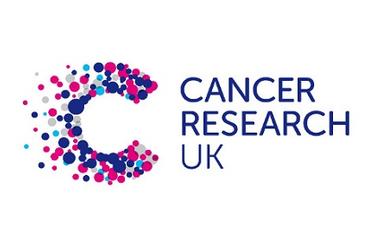Cancer Research UK (CRUK)’s income grew by £86.6m to £668.5m in 2021-22, according to recently filed documents, exceeding its revenue recorded two years earlier.
The charity’s annual report and accounts for the financial year 2021-22, published yesterday, shows that it performed better than anticipated due to income from retail and events doubling on the previous year.
CRUK previously forecast that the impact of the Covid-19 pandemic would result in a reduction in income of £300m between 2020 and 2023. It has now revised this figure down to around £200m.
At £206m, legacy income was lower than in the previous year (£213.5m), mostly driven by a decline in the number of gifts left to the charity, but it remained the charity’s largest source of income.
Meanwhile, the charity’s average gender pay gap rose to 19.7% in favour of men, which it partly attributed to “high numbers of senior female staff leaving the charity”.
Income, expenditure and investments
The charity’s total income stood at £668.5m in 2021-22, up from £581.9m the previous year, and higher than £656.1m in 2019-20.
Income from trading activities doubled to £107.7m in the year to 31 March 2022, due to its 560 shops and 29 superstores reopening their doors after closures during the previous year’s lockdowns.
The charity raised over £40m through its fundraising events, around double the previous year when many activities were cancelled.
Donations from regular givers, philanthropic donors and corporate partners declined by £6m on the year to £180m.
Total expenditure increased to £666m, up from £570.6m in 2020-21. Of this, £471m was spent on charitable activities, an increase of £52m on the previous year.
CRUK was able to invest £50m during the year, nearly making up for the £55m it divested the year before. As of 31 March 2022, managed cash and investments was £323m, which is “well above the target minimum liquidity that trustees have set in order to remain in a financially stable position”.
Staff and gender pay gap
Between 2021 and 2022, the charity lost 76 employees. The report points out that voluntary staff turnover increased “significantly in the past year and now exceeds pre-pandemic levels”.
It says: “This is primarily a result of ‘buoyancy’ in the external jobs market, with unemployment rates now at a record low across the UK, driving an unprecedented level of choice, coupled with a significant rise in salaries offered across several industry sectors.
“The pandemic has also been a catalyst for a major change in individuals’ expectations and priorities when considering their employment options.”
The average gender pay gap rose to 19.7% from 15% in 2020-21. This can be partly explained by a major organisational change which means that the charity’s retail operation now accounts for more than half of its staff.
“Retail roles are largely held by women and are lower paid, and this has contributed to the wider gender pay gap,” the report states. “The restructure also saw high numbers of senior female staff leaving the charity.”
Fundraising complaints
In 2021-22, the charity received 830 fundraising-related complaints compared with 524 in 2020-21. The report says that the 58% increase is in line with the reintroduction of fundraising activities.
It says: “When compared with pre-pandemic data (2019/20), the total complaints we received in 2021/22 represent a 3.6% reduction overall and a 19.4% reduction in those related to our fundraising.”
‘A turning point’
Michelle Mitchell, the chief executive, said this year has been a “turning point” for CRUK.
“We pulled together, seized new opportunities and set an ambitious new long-term direction for CRUK,” she said. “None of this would’ve been possible without the extraordinary generosity and commitment of our supporters, as well as the tireless work of our staff, volunteers, partners and cancer patients.”
She continued: “Despite the progress that we’ve made over the past 12 months, we know that the impact of the pandemic on people affected by cancer, and research, will continue to be felt for years to come. There’s still a significant backlog of people waiting for tests and treatments, we aren’t making fast enough progress with early diagnosis and cancer survival, and we can’t be satisfied with the slow pace of recovery in clinical research.
“The next 12 months will be a critical time for us to put cancer back at the top of the agenda, positively influence cancer plans across all four UK nations and shape the UK Government’s 10-year cancer plan. We’re looking to the future with optimism – a future in which we bring about a world where everyone can live longer, better lives, free from the fear of cancer.”
Earlier this year, the charity pledged to spend £1.5bn on research over the next five years as part of a new strategy.
Related articles












